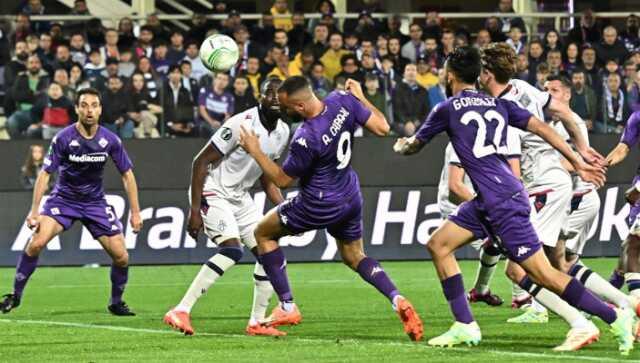Florence, a city steeped in artistic and historical grandeur, currently finds its footballing narrative leaning more towards dramatic irony than a Renaissance masterpiece. The venerable Stadio Artemio Franchi, typically a vibrant canvas of fervent support, has recently been painting a bleak picture, echoing with the sound of disgruntled whistles and unambiguous chants. Following a second consecutive home defeat, this time to Como, coach Stefano Pioli – a figure well-acquainted with the fiery passions of the Viola faithful – is now firmly in the eye of a tempest.
An Unexpectedly Rocky Start to the Season
The 1-2 loss against Como has not merely added to Fiorentina`s tally of setbacks; it has significantly amplified the unease that first took root with an earlier defeat to Napoli. For a club that entered the season with palpable ambition and lofty expectations, the paucity of points accumulated thus far stands in stark contrast to their pre-season narrative. The Curva Fiesole, the passionate heart of Fiorentina`s support, wasted no time in making its displeasure known. As the final whistle signaled another disappointment, the customary applause evaporated, replaced by a chorus of boos and pointed demands for the team to «respect the jersey,» to «run,» and to exhibit «more grit.» Sporting Director Daniele Pradè also found himself explicitly targeted by the fans` ire.
Pioli`s Candid Admission and the Burden of Responsibility
In the aftermath, Coach Pioli, usually a figure of composed determination, did not shy away from the harsh reality. «I am sorry because our results are creating discontent in the environment,» he conceded, acknowledging the validity of the fans` vocal protests. His candid admission – «I did not expect such a difficult start, and I am disappointed» – offered a rare glimpse into the palpable pressure. While he briefly touched upon a disputed free-kick leading to Como`s opening goal, his primary focus remained squarely on his team`s deficiencies: a failure to perform for a full 90 minutes and a discernible lack of precise ball management. The underlying message was clear: the ultimate responsibility lies within the squad`s performance.
«One might observe that `unexpectedly difficult starts` are a common thread in football narratives, often preceding a swift re-evaluation of `long-term projects.` It’s a curious paradox of the beautiful game.»
The Captain`s Rallying Cry and the Director`s Unwavering Backing
The sentiment of accountability found an echo in team captain Luca Ranieri. His post-match assessment was equally forthright, yet underscored by a unified call to action. «The protest is right because we are Fiorentina, and we must give more,» Ranieri stated emphatically. He urged against succumbing to «drama» but unequivocally stressed the necessity to «pedal harder and have more courage.» The immediate objective is now crystal clear: securing a vital victory in the upcoming match against Pisa, a fixture whose significance has now dramatically escalated.
Sporting Director Daniele Pradè, a figure equally under the spotlight, echoed the sentiment of «great regret and disappointment.» While acknowledging the unexpectedly poor trajectory, Pradè maintained a longer-term perspective. «We are at the beginning of a journey,» he articulated, expressing confidence in the team`s inherent quality and asserting that a «change» in fortunes is inevitable. Perhaps most notably, and with a declaration familiar to observers of football`s managerial carousel, Pradè affirmed «unlimited trust» in Stefano Pioli, lauding him as their «leader» and a «man of experience.» Such pronouncements, while intended to solidify support, often carry a certain dramatic tension in the high-stakes world of professional football.
Navigating the Turbulent Waters Ahead
Fiorentina now finds itself at a pivotal juncture. The pressure emanating from the stands is tangible, and the initial optimism that preceded the season has been rapidly eroded by two disheartening home performances. The immediate challenge for Coach Pioli and his squad extends beyond merely accumulating points; it encompasses the urgent rediscovery of a cohesive team identity and a demonstrable commitment to the «grit» their passionate, yet currently disillusioned, fanbase demands.
The journey, as Pradè remarked, may indeed be long. However, in the unforgiving realm of top-tier football, patience is a commodity that quickly depletes when results fail to materialize. The forthcoming matches will be more than just contests for league points; they will serve as a crucial litmus test for the club`s resilience and a critical opportunity to begin mending the fractured relationship with its fervent supporters.

